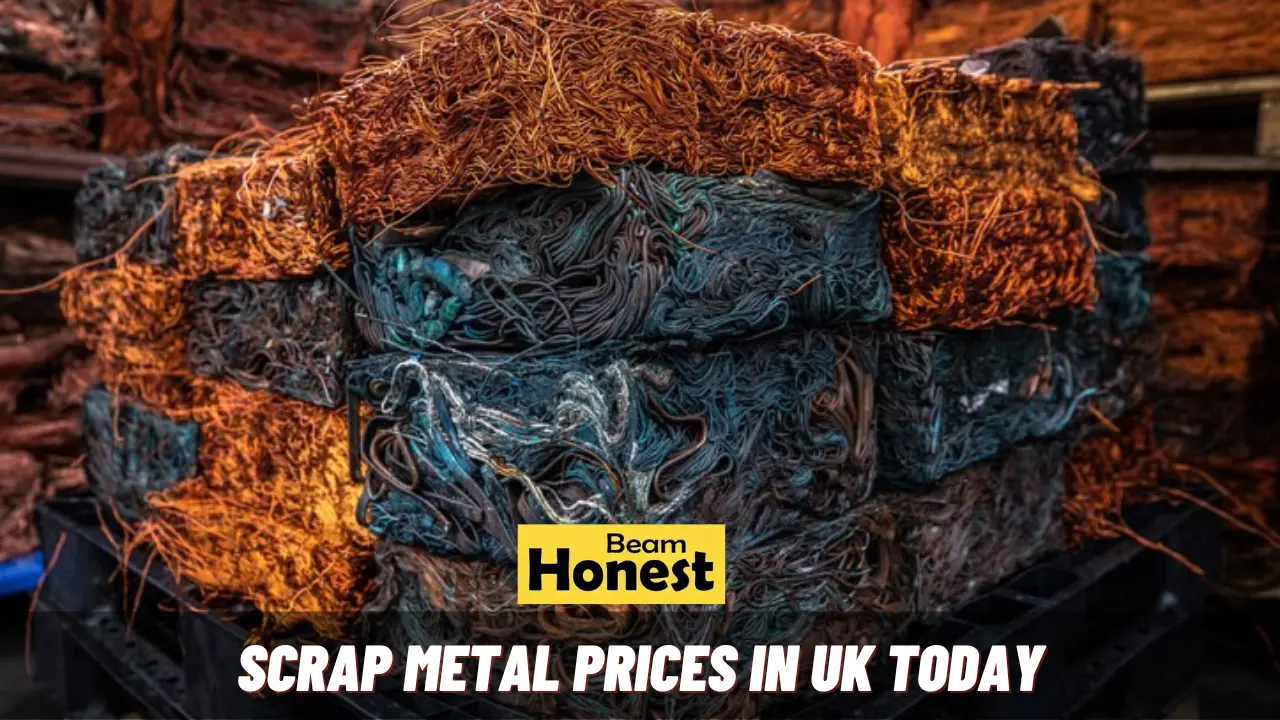Copper scrap prices in the UK have experienced an unprecedented surge, marking a pivotal juncture in the economic landscape. As industries increasingly recognize the intrinsic value of copper, its demand has skyrocketed. Copper has significantly contributed to the economic fabric of the United Kingdom. The versatile and recyclable nature of copper scrap positions it as a cornerstone in sustainable practices, shaping the country’s commitment to a circular economy. From copper to aluminum, brass, stainless steel, lead, and iron. Each metal has its own story of recycling, sustainability, and economic dynamics to tell. Join us on this voyage of discovery into the fascinating world of UK scrap metal prices!
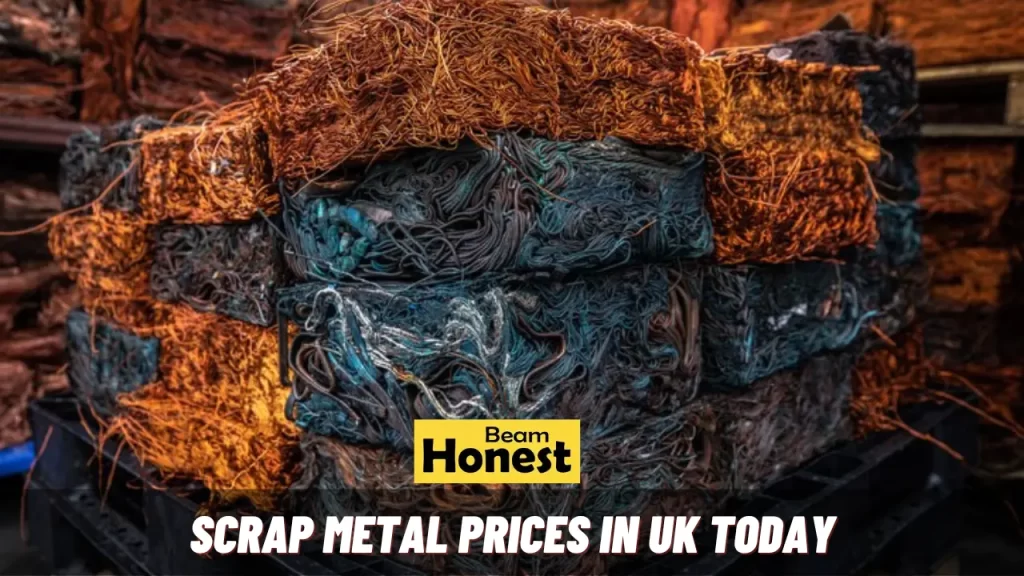
Scrap Metal Prices in the UK Today 2025
Navigating the complex landscape of UK scrap metal recycling requires an in-depth knowledge of its pricing dynamics. This section will examine the current prices of scrap metals, in detail.
| Metal | Price Range (£) |
|---|---|
| Copper Tanks | £3.41 – £3.77 |
| Bare Bright Copper | £4.02 – £4.45 |
| Aluminium Extruded | £0.84 – £0.92 |
| White Goods | £0.14 – £0.15 |
| Clean Brass | £2.39 – £2.64 |
| Copper 2 | £3.47 – £3.84 |
| Lead | £1.02 – £1.12 |
| Stainless Steel 18/8 | £0.61 – £0.67 |
| Aluminium Cast | £0.50 – £0.55 |
| Insulated Wire 2 | £1.23 – £1.36 |
| Stainless Steel 3/6 | £0.84 – £0.92 |
| Electric Motors | £0.26 – £0.29 |
| Copper 1 | £3.65 – £4.03 |
| Braziery Copper | £2.95 – £3.26 |
| Aluminium Turnings | £0.21 – £0.23 |
| Insulated Wire 1 | £1.63 – £1.80 |
| Mixed Brass | £2.00 – £2.21 |
| PB Battery | £0.43 – £0.47 |
Also Read:
Current Scrap Copper Prices in the UK
Navigating copper prices in the UK today requires an acute knowledge of market dynamics. Copper remains a highly prized material in scrap metal markets, with prices always shifting up or down depending on which side of the political aisle one stands. Price fluctuations depend heavily on variables like weight, grade, and local demand. Scrap yards nationwide actively seek this valuable metal, found in household and workplace items like old water heaters, electronics, and appliances.
Insulated copper wire, the most lucrative form, can command an impressive price per kilogram beginning at £4. For sellers in this market, considering these variables is crucial for informed decisions in the UK recycling industry.
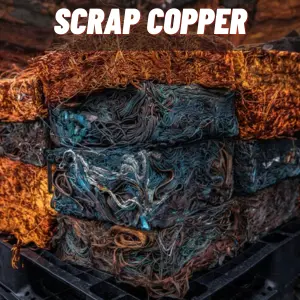
Current Scrap Aluminium Prices UK
At present, scrap aluminum prices in the UK reflect an ever-evolving market influenced by various factors. Scrap yards across the nation have observed price variations between £0.50 and £2 per kilogram of scrap aluminum scrap, equivalent to £500 to £2000 per tonne of aluminum scrap. Metal’s accessibility, coupled with its lightweight and corrosion-resistant qualities, explains its widespread usage across industries ranging from packaging to automotive production.
Scrap aluminum comes from various sources, spanning household products like beverage cans and window frames to automotive and electronic device components. Cleanliness and quality are critical considerations in setting prices for sellers. Future trends should be driven by technological innovations and sustainability efforts. Reflecting its ever-evolved role within the wider scrap metal industry.
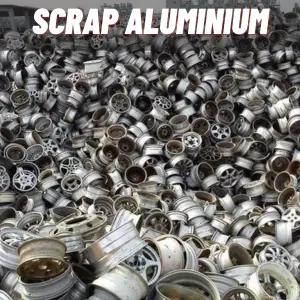
Current Scrap Brass Prices UK
As we step into the current year, the landscape of scrap metal trading in the United Kingdom reveals intriguing dynamics for brass. Scrap brass, an occasionally traded metal, experiences fluctuations in prices due to sporadic shortages. As it stands in 2025, the prices for scrap brass are relatively low compared to other metals. Sellers can expect to receive anywhere between £2 and £3 for a kilo of brass, which equates to £2000 to £3000 per tonne.
It’s worth noting that the pricing variance among scrap yards is considerable. While most yards in the UK accept brass, the discerning seller might find substantial differences in offered prices. Navigating this landscape requires sellers to stay attuned to market trends and choose reputable scrap yards for fair and transparent transactions.
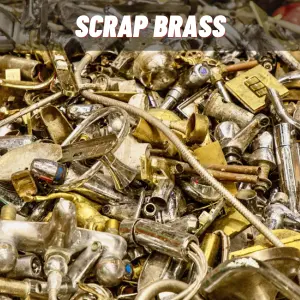
Current Scrap Stainless Steel Prices UK
At the core of the UK scrap metal market, stainless steel remains an invaluable commodity. Since 2025, scrap stainless steel prices have remained resilient year-round. A testament to its longstanding demand. Stainless steel’s value depends on various factors, including its quality, grade, and local demand for scrap steel. Prices typically range from £0.60 per kilogram with sheets and beams fetching higher prices.
Stainless steel has long been prized for its corrosion resistance and versatility, making it one of the more profitable types of metal to recycle. To successfully manage this segment of scrap metal recycling, individuals and businesses must stay informed about local market needs and quality issues.
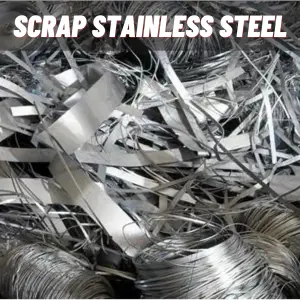
Current Scrap Lead Prices UK
Today, scrap lead has become an extremely sought-after commodity in the UK’s scrap metal landscape, commanding high prices. Due to its scarcity, scrap lead can be hard to source; limited sources exist such as specific pipes, wires, or sheets where one may find this metal. Batteries contain significant amounts of lead and could provide another source for scrap lead extraction. However, prices in the UK typically range from £1 per kilogram up to £1.15 per kilo, or around £1000 to £1150 per ton.
This higher valuation reflects the difficulties associated with procuring lead and its use across industries. Sellers venturing into the scrap lead market must exercise extreme caution due to the difficulty of acquisition. However, their potential returns must match those associated with its scarcity and extraction complexities.
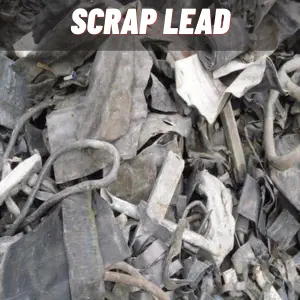
Current Scrap Iron Prices UK
Contrary to its counterparts, the United Kingdom’s scrap iron market has witnessed an unexpected decrease in prices. While its cause remains uncertain, possible explanations include decreased demand or an increase in supply. Noteworthy is the fact that only a select few scrap yards actively seek additional iron supplies at this time, suggesting there is limited demand in the current market. According to current assessments, scrap iron prices currently sit around £17 per kilogram or equivalently to £170.00 per ton.
This downward trend reflects the volatility in the scrap metal industry, where factors like demand, economic shifts, and global dynamics shape pricing. For scrap iron stakeholders, adapting and understanding these fluctuations are vital in grasping the current conditions of UK prices
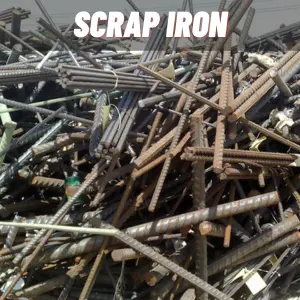
UK Scrap Metal City Wise Prices
As the United Kingdom is home to diverse geography, the scrap metal market exhibits an intricate tapestry of prices that vary among cities. Achieving clarity about these variations is of great value to both individuals and businesses engaged in the scrap metal trade. In this section we explore current prices in major UK cities; providing insight into unique dynamics influencing values of metals such as copper, aluminum, brass, stainless steel lead, and iron as well as providing comprehensive city-wise scrap metal price guides so stakeholders can make informed decisions in this ever-evolving market.
| City Name | City Name | City Name | City Name |
|---|---|---|---|
| Belfast | Birmingham | Bradford | Brighton |
| Bristol | Cardiff | Coventry | Derby |
| Edinburgh | Glasgow | Leeds | Hull |
| Leicester | Liverpool | London | Manchester |
| Newcastle | Nottingham | Plymouth | Portsmouth |
| Sheffield | Southampton | Stoke-on-Trent | Wolverhampton |
Factors Influencing Scrap Metal Prices in the UK
At the UK scrap metal market, various key factors play a pivotal role in shaping its pricing dynamics. Here are seven crucial considerations that help set prices of various metals.
Global Market Trends
International demand and supply factors, geopolitical events, and economic shifts on a global scale all have an effectful ripple through to UK scrap metal prices. However, traders closely follow these global market trends to anticipate and adapt accordingly.
Local Demand and Supply Analysis
Demand and supply for scrap metals within the UK create regional price variations. Industries such as construction, manufacturing, and technology heavily influence this demand for specific metals resulting in fluctuations based on availability and industrial needs.
Grading Scrap Metal
Metal grades that meet industrial specifications for purity, quality, and suitability for industrial processes play a key role in determining their value in recycling markets. Metals with higher grades tend to garner higher prices. Reflecting how essential quality is.
Weight of Metal
Metal’s weight is an integral factor when considering pricing structures; scrap yards often pay according to weight. As individuals and businesses enter into recycling markets for metal products, their weight should always be taken into consideration before entering.
Economy
National and global economic conditions have an outsized influence over scrap metal prices. Economic downturns can lead to reduced industrial activity, impacting demand for scrap metals. And therefore their market prices directly.
Environmental Regulations
Environmental regulations and sustainability initiatives play a large part in shaping the pricing dynamics of scrap metals, potentially increasing demand. Governments and industries that prioritize eco-friendly practices could push up recycling prices as government mandates have an effect.
Also Read:
Top Car Breaker Yards in London
For More of the Latest Updates Visit HonestBeam
Final Thoughts
As previously discussed, the UK scrap metal industry is an ever-evolving environment shaped by a wide array of influences. From global market trends and local demand, metal grading standards and economic conditions affect the pricing dynamics of various metals. In navigating this industry, staying informed is paramount for making well-informed strategic decisions.
As technological advancements, environmental regulations, and economic shifts impact the scrap metal market, stakeholders must remain vigilant for success. Monitoring these changes helps individuals and businesses navigate, contributing to the long-term sustainability and profitability of the industry in the UK.
Frequently Asked Questions (FAQs)
Scrap metal prices in the UK are influenced by factors such as global market trends, local demand, material grading, and the weight of the metal.
Common sources of scrap copper include old water heaters, electronics, appliances, and insulated copper wire.
Yes, various industries, including construction, manufacturing, and technology, contribute to the demand for different types of scrap metals.
Individuals can contribute to sustainable metal recycling by responsibly disposing of metal items, separating recyclables, and supporting local recycling initiatives.
Businesses contribute to sustainable metal recycling through efficient waste management, supporting initiatives, and adopting eco-friendly practices. Collaboration with reputable recycling partners is essential.

